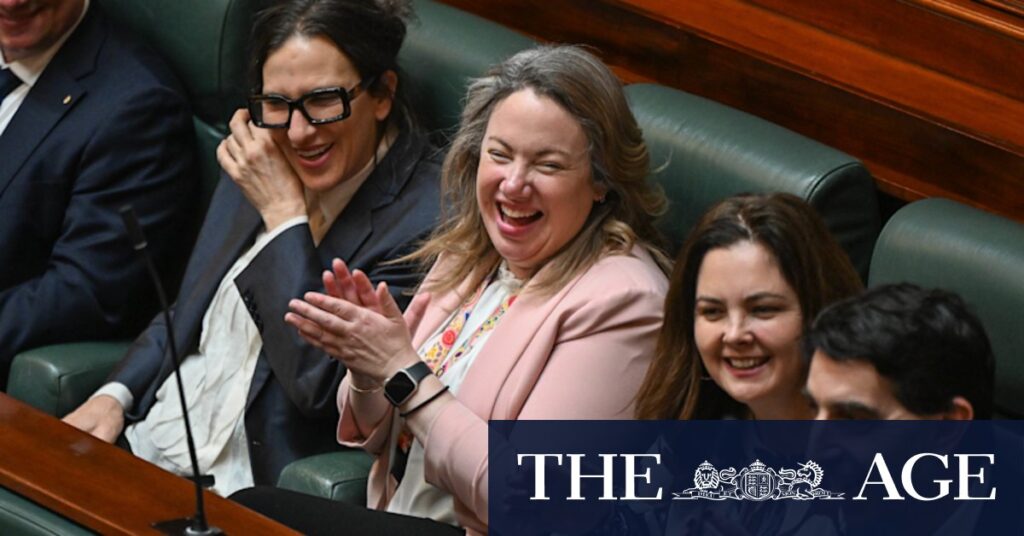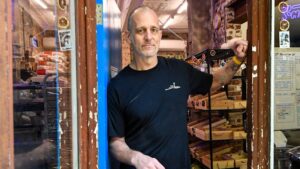
Voluntary assisted dying reform has passed the lower house of the Victorian Parliament, drawing applause and emotional embraces among members. Both Labor and the Coalition allowed a conscience vote, providing MPs the opportunity to share personal stories and thoughtful contributions that shaped their positions. Many recounted experiences with loved ones who endured painful deaths, some choosing to die on their own terms, leaving many MPs visibly moved to tears.
Victoria, the first Australian jurisdiction to legislate assisted dying in 2017, has maintained stringent restrictions compared to other states. The newly passed bill aims to align Victoria with these states by permitting doctors to initiate discussions about voluntary assisted dying and extending access to patients with a prognosis of 12 months to live. The bill now advances to the upper house, where it faces a more challenging path to approval.
Historic Session and Emotional Testimonies
Lower house MPs remained in session until 2:07 am on Wednesday, sustained by hot chips and dim sims, returning by 9:30 am for another day of deliberations. Speaker Maree Edwards noted the chamber’s restlessness during the afternoon’s question time, acknowledging the lack of sleep shared by all.
The session was marked by speeches reflecting on the “best of parliament,” as former opposition leader John Pesutto described. He expressed empathy for colleagues across the aisle, highlighting the rare sense of unity and understanding in the often contentious parliamentary environment. Many MPs expressed gratitude to Jill Hennessy, the former health minister who championed the original reform in 2017.
Particular thanks were directed towards Emma Vulin, the Labor member for Pakenham, who, despite suffering from motor neurone disease, delivered a poignant contribution via text-to-speech technology. “I may one day choose voluntary assisted dying,” she told the parliament, emphasizing the importance of agency in making such a personal decision.
“I do not know how my journey with MND will end, but I do know this: the knowledge that I may have voluntary assisted dying as an option gives me strength.” – Labor MP Emma Vulin
Political Dynamics and Shifting Perspectives
The vote concluded at nearly 8:30 pm on Wednesday, with the bill passing 67 to 13. Vulin and Health Minister Mary-Anne Thomas embraced colleagues from both sides of the chamber, celebrating the momentous occasion. Notably, a dozen Coalition MPs supported the bill, while five Labor MPs, including ministers Anthony Cianflone and Natalie Suleyman, voted against it.
Many Coalition MPs spoke about their evolving views since initially opposing assisted dying legislation eight years ago. Opposition Leader Brad Battin shared personal experiences that influenced his change of heart, including witnessing a close friend’s wife succumb to cancer and a groomsman’s father choose assisted dying following a pancreatic cancer diagnosis.
“I agree with the premier. Because it is about people, it is not about politics.” – Opposition Leader Brad Battin
Since the law’s implementation, approximately 3,500 Victorians have engaged with the process, with 1,683 utilizing assisted dying. Despite numerous proposed amendments, all were ultimately rejected.
Concerns and Future Challenges
Greenvale MP Iwan Walters, representing Labor’s Catholic-influenced SDA union sub-faction, expressed concerns about potential unintended consequences, including the erosion of health practitioners’ right to conscientiously object. Walters argued that the proposed changes could allow any health practitioner to discuss voluntary assisted dying with patients, a claim refuted by clarifications that such discussions must occur within the context of end-of-life care.
Health Minister Mary-Anne Thomas emphasized the importance of language, urging careful consideration of how terms like “assisted suicide” might cause distress. Nationals MP Jade Benham also distinguished voluntary assisted dying from suicide, sharing her own experiences to underscore the difference.
“Voluntary assisted dying is not suicide. I have been to that edge, twice.” – Nationals MP Jade Benham
Legal barriers remain, such as the prohibition of voluntary assisted dying consultations via telehealth under the Commonwealth Criminal Code. Thomas continues to advocate for changes to enable telehealth access, particularly for regional residents.
The bill now heads to the upper house, where Labor lacks a majority. Few Liberal and Nationals members are expected to support it, with only opposition health spokeswoman Georgie Crozier publicly indicating her favorable stance. Nationals deputy leader Emma Kealy commended the government for providing comprehensive information on the legislation, hoping for more informed and productive legislative processes in the future.






